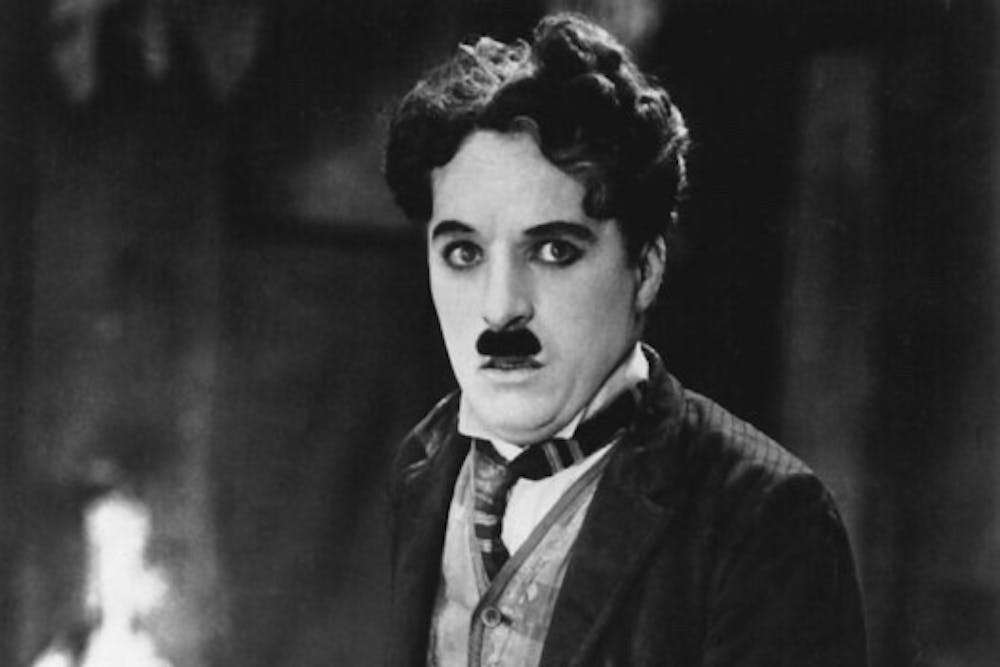
"Topics in Film Studies: European Pantomime and the Films of Charles Chaplin" will explore Charlie Chaplin's life and the political messages of his works. (CC BY-SA 2.0)
The English and Cinema Studies Departments are offering a new course this fall that examines European pantomime and the legacy of actor and comedian Charlie Chaplin.
The Benjamin Franklin Seminar, titled “Topics in Film Studies: European Pantomime and the Films of Charles Chaplin,” will examine the history of European-style pantomime — the art of storytelling or portraying a character through body movements — and the social and political impacts of Chaplin’s 20th-century silent films.
The course also intends to reduce social barriers between Penn’s campus and the Philadelphia community through silent film screenings and performances open to the public.
Benjamin Franklin Seminars are small courses focused on intensive discussion and investigation. These seminars are required for students in the Benjamin Franklin Scholars program.
English professor and British literature specialist Toni Bowers will teach the seminar, which is cross-listed as ENGL 392 and CIMS 392.
“Silent films are just amazing kinds of other worlds," Bowers said. "I wish I could take each student by the hand and lead them to this world of silence and laughter.”
Bowers said she will trace the influence of European pantomime from its 16th-century Italian origins through 18th-century farces, British musicals, and ultimately silent films.
Unlike pantomime from other parts of the world, European pantomime is “really about evoking shared feelings [like laughter] in the audience,” Bowers said.

The course will explore Chaplin's life and the political messages of his works. It will emphasize how he resisted fascism through his silent films. Chaplin famously satirized Adolf Hitler in his 1940 film, "The Great Dictator." Because language is closely tied to national identity, Chaplin believed that film with dialogue — unlike silent film — divided people based on nationality, Bowers said.
“He saw that silent film transgressed or evaded those boundaries and made it impossible for people to pretend that they were fundamentally different from other people,” Bowers said. “His great thesis was that people are all the same.”
To reflect Chaplin's idea of the unifying potential of pantomime, Bowers said class assignments will seek to connect the Penn community and the surrounding neighborhood.
Wearing their own Chaplin costumes and channeling the titular character from his 1915 film, "The Tramp," students will present a “10-minute bit of clowning” at a venue near campus. The class will also screen Chaplin’s silent films at the Annenberg Center for the Performing Arts, the Lightbox Film Center at the University of the Arts, and The Rotunda for the public.
For the final exam, students will perform a short skit in small groups and present an open-ended project for the public. This could be an interpretation of a scene, a homemade pantomime film, an art installation, or another endeavor.
This initiative to engage the public is a “small step toward making a few more people comfortable coming to campus and feeling like they could have some fun and learn something,” Bowers said.
Other assignments will include workshops with professional mimes and clowns and wearing a Chaplin costume for an entire day. With students going about their day in costume, Bowers said she aims to recreate Nov. 12, 1916 — the day there were "800 simultaneous sightings of Charlie Chaplin."
Although the assignments are primarily artistic, students do not need prior performance experience to take the course.
Students “have to want to try something new and be brave and be willing to be silly,” Bowers said.
The goal of the class simply is “to have fun [and to] evoke laughter. And maybe to replicate some of that sense that people can relax together and feel comfortable with each other and we can take down some of the divisions,” Bowers said.
The Daily Pennsylvanian is an independent, student-run newspaper. Please consider making a donation to support the coverage that shapes the University. Your generosity ensures a future of strong journalism at Penn.
Donate






